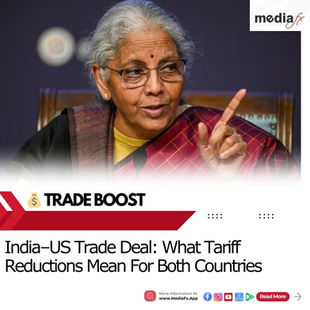top of page
Widget Didn’t Load
Check your internet and refresh this page.
If that doesn’t work, contact us.


Why Bitcoin’s Crash Is Wiping Out Trillions from the Global Crypto Market
Bitcoin, along with other cryptocurrencies, has seen a dramatic crash, wiping out trillions from the global crypto market. The digital currency, once hailed as a revolutionary investment, has faced a sharp decline, leaving investors with significant losses. This crash follows a broader trend of market instability, which has been affecting not only cryptocurrencies but also precious metals like gold and silver. The fall in Bitcoin’s value is a reflection of the volatility and
5 hours ago


Why Silver Prices Dropping by ₹1,45,000 Per Kg Is Hurting Investors
Silver prices have taken a sharp dive, dropping by ₹1,45,000 per kilogram, causing a significant loss for investors who bought silver at its peak levels. This sudden decline has left many reeling, especially those who saw silver as a safe haven investment during periods of uncertainty. The drop in silver prices is part of a broader trend in precious metals, which have seen fluctuations due to global economic conditions and market sentiment. Silver, once seen as a stable store
6 hours ago


Shocking News for Team India: Star Player Excluded from T20 World Cup
In a heartbreaking turn of events, Team India’s pace bowler, Harshit Rana, has been ruled out of the T20 World Cup after suffering an injury during a warm-up match against South Africa. The promising young bowler, who was looking to make a mark on the international stage, sustained the injury during the practice session, leaving fans and the team devastated. Rana’s exclusion from the squad is a major blow to India’s pace bowling attack. The 24-year-old had been in excellent f
7 hours ago


Why Three Minor Sisters’ Tragic Deaths in Ghaziabad Are Raising Alarming Questions About Online Game Addiction
A heartbreaking tragedy has unfolded in Ghaziabad, where three minor sisters were found dead in what authorities suspect may have been a coordinated suicide. The incident has sparked concerns about the influence of online culture and gaming addiction, as well as the financial struggles faced by the family. The sisters, aged 13, 10, and 7, had reportedly become increasingly obsessed with a Korean online game, which many believe contributed to their decision. A diary and a suic
9 hours ago


Why Yumnam Khemchand Singh’s Claim To Form Manipur Government Is Causing Political Ripples
Yumnam Khemchand Singh’s claim to form the government in Manipur has set the state’s political landscape on fire, with the leader stating that he has enough support to take over as the Chief Minister. Khemchand Singh, who is backed by a significant portion of the newly elected members, has staked his claim despite the uncertainty surrounding the final coalition dynamics. His move comes after months of political instability and the recent elections in the state, where multiple
2 days ago


Why Infosys Shares Plummeting 4.5% Is Sending Shockwaves Through The Market
Infosys has just recorded its worst day in over 30 months, with shares plummeting 4.5%, wiping off ₹49,000 crore from its market capitalization. This significant drop has left investors and market analysts scrambling for answers, as the company faces a turbulent phase. The plunge came after Infosys reported weaker-than-expected quarterly results, triggering concerns about its future growth prospects. While the company continues to maintain its leadership in the Indian IT sect
2 days ago


Why Adivi Sesh's "Dacoit" Chose A New Release Date To Avoid Clash With Big Films
The makers of Adivi Sesh's much-anticipated film *Dacoit* have officially announced a new release date, avoiding a clash with two major films: Ranveer Singh’s *Dhruandhar 2* and Yash’s *Toxic*. *Dacoit*, which was initially scheduled to release on the same day as these blockbuster films, faced the risk of being overshadowed by their massive fanbases and promotional reach. Instead of fighting for screens, the makers chose a strategic move — shifting the film's release to a mor
2 days ago


Why Walking On A Treadmill Incline Could Be The Secret To Faster Fat Loss
Recent research by cardiovascular scientists has put the spotlight on treadmill incline walking as one of the most effective exercises for fat loss. According to the study, walking on an incline burns significantly more calories and promotes fat burning more effectively than walking on a flat surface. This revelation is particularly exciting for fitness enthusiasts who want to boost their weight loss routines without needing to commit to intense cardio or running. Researchers
2 days ago


Why India–US Trade Deal Could Reshape Global Tariffs and Strengthen Relations
India’s Finance Minister Nirmala Sitharaman has shed light on the upcoming India–US trade deal, which is expected to bring significant reductions in tariffs between the two nations — a move that could strengthen their economic ties and reshape global trade dynamics. Sitharaman emphasized that the trade deal would not only benefit bilateral relations but also have global implications, especially concerning the ongoing trade war between the US and China. As both countries have
2 days ago


Why Rajamouli, Mahesh Babu, and Priyanka Chopra’s 'Varanasi' Is A Highly Awaited Release
The upcoming movie *Varanasi* has become one of the most eagerly awaited films in Indian cinema, thanks to its star-studded cast, directed by SS Rajamouli and featuring Mahesh Babu and Priyanka Chopra. The film, which is being described as a "globetrotter" project, has already sparked massive excitement, not just because of its A-list leads but also due to its ambitious narrative, which blends action, emotion, and international appeal. Fans are eagerly waiting to see how Raja
2 days ago


Why Trump Claiming India Will Stop Russian Oil Imports Is Raising Questions
Former US President Donald Trump’s claim that India will stop importing Russian oil after a US trade deal has triggered sharp reactions — and even sharper scrutiny. Speaking in the context of a potential US–India trade agreement, Trump suggested that India would reduce or stop buying Russian oil once a deal is in place. The statement quickly spread across global media, but Indian officials have not confirmed any such commitment. What makes this claim sensitive is timing. Sinc
2 days ago


What Bird Flu Detection After 150 Crow Deaths In Bhagalpur Means
Bird flu has been officially confirmed in the Naugachia subdivision of Bihar’s Bhagalpur district after more than 150 crows were found dead, triggering immediate containment measures. According to authorities, laboratory tests confirmed avian influenza in samples collected from the area. In response, local administrations have launched sanitisation drives and stepped up surveillance to prevent the virus from spreading to nearby poultry farms. Officials say rapid action is cri
3 days ago


What We Know About The Viral Video Of A Girl Rescuing Her Brother
A video circulating widely on social media shows a young girl holding tightly onto her younger brother while both appear caught near fast-moving water, drawing intense attention online. In the footage, the child is seen struggling against the current as the girl maintains her grip and attempts to move toward safety. Despite the visible force of the water, she does not let go. After several moments, other individuals approach and help pull both children away from the flow. The
3 days ago


Loyal Dog Sits Patiently On Highway Waiting For Daily Feeder
A short video of a dog sitting calmly in the middle of a busy highway has struck an emotional chord across social media — not because of chaos, but because of loyalty. The video, captured by a young woman, shows the dog sitting quietly as vehicles pass by, unfazed and patient. The reason soon emerged: the dog was waiting for the man who feeds him every day. He wasn’t lost. He wasn’t confused. He was waiting. What makes the moment powerful is its stillness. In a place associat
3 days ago


Gold-Like Coins Found Near Rajgarh Fort, Officials Begin Examination
Villagers near Rajgarh Fort in Madhya Pradesh have uncovered a collection of “gold-like” coins, triggering excitement, curiosity, and historical speculation. The coins were reportedly found during routine activity close to the fort area and are believed to be around 500 years old. Early assumptions suggest a possible link to the Bundela era, a period known for regional kingdoms, warfare, and temple-linked wealth circulation across central India. What’s important is that the c
3 days ago


How US Media Views India’s Latest Trade Deal
Major US media outlets hailing India’s latest trade deal as a “step forward” has quietly become an important global signal — even if it hasn’t dominated headlines yet. According to multiple American publications, the deal is being framed as pragmatic rather than dramatic. It doesn’t promise overnight transformation, but it reduces friction, improves predictability, and strengthens long-term economic alignment between India and Western markets. What stands out is tone. US medi
3 days ago


Why ‘Dhurandhar: The Revenge’ Pan-India Release Is Being Watched Closely
The announcement that *Dhurandhar: The Revenge* will release pan-India on March 19 has quietly raised expectations — and questions — across film circles. Pan-India releases are no longer rare, but they are still risky. The decision to take *Dhurandhar: The Revenge* beyond a single-language audience signals confidence in scale, theme, and marketability. Makers believe the film’s revenge-driven narrative and visual treatment can travel across regions without heavy localisation.
3 days ago


Delhi Begins February Cooler Than Last Year, Says IMD Data
Delhi began February on a cooler note this year, with Sunday’s maximum temperature settling at 24.6 degrees Celsius — lower than the same period last year. According to the Indian Meteorological Department, the maximum temperature on Sunday was around 1.6 degrees lower than last year’s 26.2 degrees Celsius. However, it still remained about 2.3 degrees above the seasonal average, showing that the chill is relative rather than extreme. What’s making this stand out is timing. Fe
3 days ago


Why ‘Dear Astronaut’ Glimpse Is Creating Quiet Buzz In Telugu Cinema
The first glimpse of *Dear Astronaut* is out — and instead of loud hype, it’s creating something rarer in Telugu cinema: quiet curiosity. The glimpse doesn’t rely on punch dialogues, action shots, or star-driven elevation. Instead, it leans into mood, scale, and an emotional undercurrent that feels unfamiliar for mainstream Telugu releases. That difference is exactly why creators and film-watchers are paying attention. Early reactions online describe the visuals as restrained
3 days ago


How A ₹54 Crore Fake Silk Dupatta Scam Rocked Tirupati Temple Trust
A ₹54 crore scam involving fake silk dupattas has shaken the Tirumala Tirupati Devasthanams (TTD), raising serious questions about trust, oversight, and accountability in one of India’s most revered institutions. According to investigators, polyester dupattas were allegedly supplied and sold as “pure silk” for years, directly violating TTD procurement rules. These dupattas were meant for devotees and temple-related distribution, where silk quality is strictly regulated due to
3 days ago


🐘 The Tale of Raja the Elephant and the Great Robot Factory 🤖
A Funny, Wise Story from the Faraway Tech Kingdom 💻 Once upon a time in the far‑away Tech Kingdom of Gigabyteland , there was a giant and magnificent machine factory called MegaBot Works 🏭. It was run by the wise (and sometimes overly ambitious ) ruler Raja the Elephant 🐘 . MegaBot Works was known across the land for making friendly robots that helped everyone — from kids learning math to elders fetching water 💧, to farmers bringing in the crops . The kingdom prospered,
4 days ago
bottom of page
